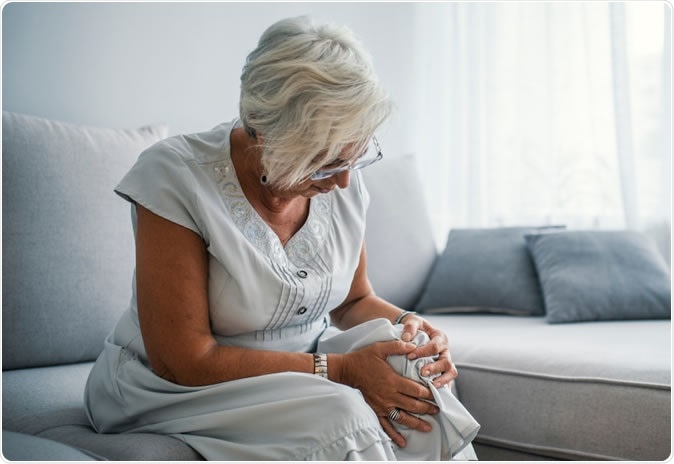Older adults are at risk of many conditions often caused by aging. In some instances, they also experience emotional and psychological problems, resulting from the diseases they suffer from. One of the most common problems they encounter is loneliness, which leads to social isolation.
Social isolation is a term often used interchangeably with loneliness. It is an objective state where only a few contacts of the person can be counted, which means they isolate themselves from others. It often leads to feelings of loneliness, negative self-esteem, and fear of others. Social isolation and loneliness can affect the physical and mental health of older adults.

Image Credit: Dragana Gordic / Shutterstock
Osteoarthritis and social isolation link
There are many health conditions that can lead to social isolation, including osteoarthritis. Older people with osteoarthritis may have a hard time moving around, and they may have other co-occurring conditions such as anxiety and depression. These people are also physically inactive and unable to care for themselves.
Osteoarthritis is the most common type of arthritis. About 10 to 15 percent of all adults who are more than 60 years old have some degree of osteoarthritis, with more women affected than men. However, only a little research has been conducted to see the connection between osteoarthritis and social isolation.
A team of researchers examined data from the European Project on OSteoArthritis (EPOSA) study, to see whether there is a link between the two, and if the disease contributes to social isolation. Published in the Journal of the American Geriatrics Society, the study highlights the importance of support given to patients living with osteoarthritis.
The EPOSA is a study with nearly 3,000 participants who are between 65 and 85 years old. They live in six European countries, namely Netherlands, Italy, Spain, Germany, Sweden, and the United Kingdom. In the study, a total of 1,967 participants were involved.
The researchers used questionnaires wherein patients logged how often and how many times they connected socially with family and friends. They also determined how often the participants engaged and participated in social activities.
The team measured and assessed social isolation using the Lubben Social Network Scale and the Maastricht Social Participation Profile. They also assessed the clinical osteoarthritis of the hip, knee, and hand. They measured social isolation at the start of the study and at 12 to 18 months later.
Approximately half of the participants were women, and almost 30 percent of them had arthritis. At the beginning of the study, almost 20 percent of them were socially isolated. People who were not socially isolated are those who are younger, had more education, and higher income. They were also at a higher chance of becoming physically active, had faster walking times, were in better health, and had less pain.
Of the 1,585 of those who said they weren’t socially isolated at the start of the study, about 13 percent became socially isolated after the study period. They said that their health and OA became worse, with more pain and they were unable to move properly. They also developed depression and other mental health issues like problems with making decisions and thinking.
“Clinical OA, present in one or two sites of the hip and knee, or two or three sites of the hip, knee, and hand, increased the risk of social isolation, adjusting for cognitive impairment and depression and worse walking times. Clinicians should be aware that individuals with OA may be at greater risk of social isolation,” the researchers concluded in the study.
The researchers recommend that older adults with osteoarthritis should become more physically active and participate in social activities in the community. Through these activities, they can ward off loneliness and social isolation, which can lead to a plethora of other health problems.
Journal reference:
Siviero, P., Veronese, N., Smith, T., Stubbs, B., Limongi, F., Zambon, S., Dennison, E., and Edwards, M. et.al. (2019). Association Between Osteoarthritis and Social Isolation: Data From the EPOSA Study. Journal of the American Geriatrics Society. https://onlinelibrary.wiley.com/doi/full/10.1111/jgs.16159